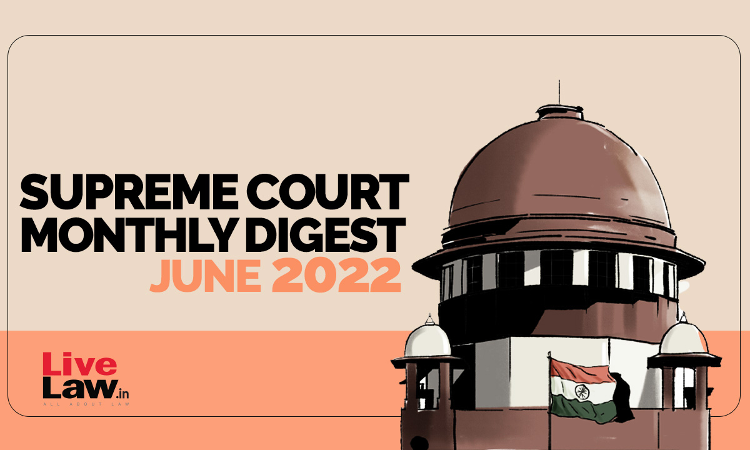- Home
- /
- Top Stories
- /
- Supreme Court Monthly Digest: June...
Supreme Court Monthly Digest: June 2022
Shruti Kakkar
6 July 2022 10:04 AM IST
Pension Is A Continuous Cause Of Action; Arrears Can't Be Denied On Ground Of Delay : Supreme Court Case Name: Shri M.L.Patil (Dead) Through LRs v. State of Goa And Anr.| Civil Appeal No. 4100 of 2022 Citation: 2022 LiveLaw (SC) 537 The Supreme Court, recently, held that arrears of pension cannot be denied on the ground of delay in approaching the Court as pension...
Next Story



